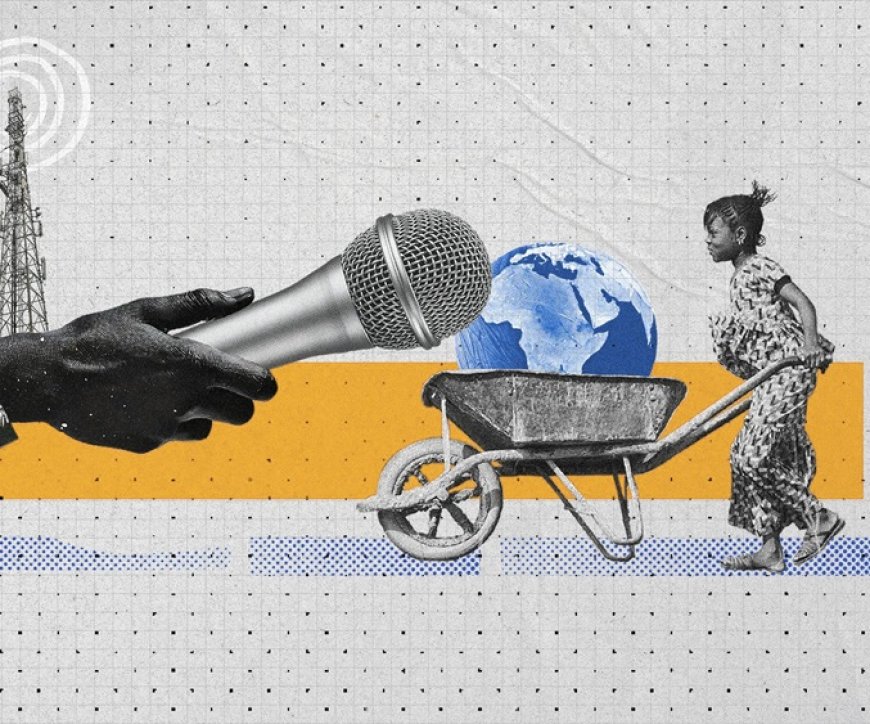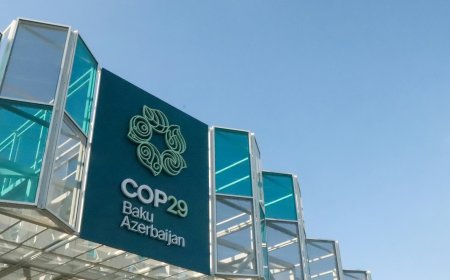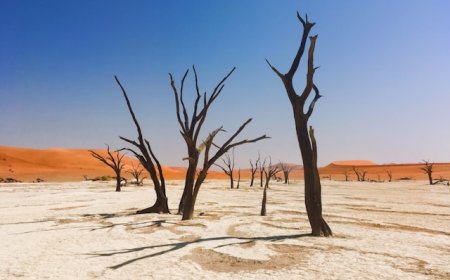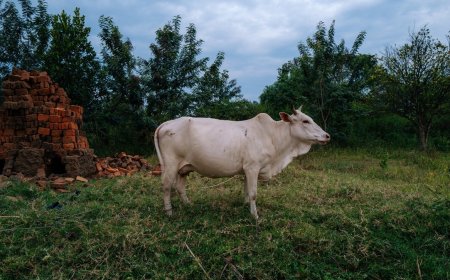Summary
There is a significant need to improve and support the reporting of climate change impacts and stories in Africa. The continent is disproportionately vulnerable to the impacts of climate change, experiencing more frequent and intense floods, droughts, and storms, yet the volume of media coverage, particularly from international sources, does not reflect this urgency. This lack of attention contributes to the marginalization of African perspectives within the global dialogue on climate change. Local journalists have a crucial role to play in bridging this gap, offering a nuanced understanding of the diverse impacts and solutions emerging within their communities.
Local journalists are taking initiative to bring climate change issues to the forefront. Projects like the #PowerTracker initiative in South Africa are investigating the social and environmental consequences of the renewable energy transition. Other journalists are raising awareness about the interconnectedness of climate change, biodiversity, and conservation, while others advocate for greater transparency and access to climate data. The work of these local journalists can directly inform policy decisions and empower communities to adapt to the challenges of a changing climate.
However, there are several bottlenecks that hinder the effectiveness of local climate change reporting in Africa. Insufficient funding remains a significant barrier, restricting journalists' access to resources and limiting their ability to conduct in-depth investigations. Sub-Saharan Africa lags behind all other regions in per capita spending on weather and climate information services. Restricted access to data and information, often due to bureaucratic hurdles or the high cost of scientific publications, further impedes their work. Journalists also face concerns about safety and well-being, particularly those reporting in areas impacted by extreme weather events, environmental degradation, or political instability.
Beyond these challenges and obstacles, overemphasis on crises and the portrayal of the African continent as a helpless victim needing outside intervention undermines local agency and obscures the innovative solutions being developed by African communities. This focus on negative framing can also lead to a sense of climate doomism, hindering proactive action.
If a more impactful and robust culture of reporting on climate change is to be achieved in Africa, much more investment will be needed to provide sustainable funding for local journalism, including covering attendance by African journalists at events like the Conference of Parties, COP, where they can interact actively with the current global discussions and negotiations on climate. Another imperative intervention is strengthening those institutions that ensure the protection and safety of climate reporters. Access to data and information has to be improved, and resources targeting journalists, such as 'journalist briefs', have to be developed to summarize complex scientific facts into a more communicative format. Building capacity for journalists and editors through training, workshops, and mentorship programs will further create an enabling environment in which they can develop skills to effectively report on the complexities of climate change.
Crucially, localizing climate change knowledge and reporting is of significant importance. This involves tailoring messages to resonate with specific cultural and social values, translating information into local languages, and incorporating Indigenous knowledge and perspectives. This approach fosters greater public engagement and understanding, empowering communities to take ownership of climate action. There must be a shift away from crisis-driven reporting toward showcasing local solutions and highlighting the resilience and agency of African communities.
International collaboration and support to strengthen climate change reporting in Africa is necessary. Partnerships between local and international journalists and media organizations to facilitate knowledge-sharing, provide access to resources, and amplify African voices on the global stage are also key. By investing in and empowering local journalists, the international community can support a more informed and equitable response to the climate crisis, one that recognizes the unique challenges and opportunities facing Africa and centers the voices of those most affected.
Recommendations for Journalists and Media Houses
- Emphasize local contexts and Indigenous knowledge to localize climate communication.
- Focus on balanced climate reporting by highlighting solutions, not just crises.
- Strengthen investigative journalism.
- Enhance journalistic networks and partnerships.
- Promote and implement ethical climate reporting practices.
Recommendations for Local and International Policymakers and Actors
- Invest in capacity building and training for local journalists.
- Improve access to reliable climate information and climate data.
- Protect journalists reporting on climate change.
- Provide long-term and flexible funding.
- Support the institutionalization of climate change reporting and storytelling in diverse news mediums.
To read the full paper, click "Download PDF" above.
About the Authors
Dr. Grace Mbungu
Dr. Grace Mbungu is a Senior Fellow and the Head of the Climate Change Program at APRI, supporting policymakers with timely and evidence-based policy options to enable the creation of long-term, sustainable, and inclusive wellbeing and livelihood opportunities. Before joining APRI, Dr. Mbungu was a fellow and research associate at the Institute for Advanced Sustainability Studies (IASS), now RIFs, in Potsdam, Germany. She holds a Bachelor’s degree in Political Science and Gender Studies as well as a Master’s degree in Public Administration, with a focus on human rights and international development from Bowling Green State University (Ohio, USA). She holds a Doctorate from the University of Stuttgart, Germany.
Sage George
Sage George is an intern at APRI in the Climate Change program as well as a graduate student at Humboldt-Universität zu Berlin in the global studies program focusing on diaspora studies and the function of intercultural dynamics on a global scale. During her travels for her program, she witnessed the role that culture plays in climate change on a sociological level.
Isabella Roberts
Isabella Roberts is a Fellow and Program Officer at APRI. She holds a Master’s in International Relations and Political Science from the Graduate Institute of International and Development Studies in Geneva, Switzerland, and a Bachelor of Arts degree in African studies and International Relations and Political Science from Wellesley College. Her research expertise extends to the realms of political action and dissent, particularly in the context of African and African diasporic politics.




